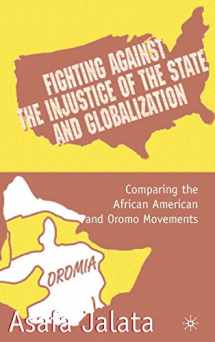
Fighting Against the Injustice of the State and Globalization: Comparing the African American and Oromo Movements
Book details
Summary
Description
The book examines, compares, and contrasts the African American and Oromo movements by locating them in the global context, and by showing how life chances changed for the two peoples and their descendants as the modern world system became more complex and developed. Since the same global system that created racialized and exploitative structures in African American and Oromo societies also facilitated the struggles of these two peoples, this book demonstrates the dynamic interplay between social structures and human agencies in the system. African Americans in the United States of America and Oromos in the Ethiopian Empire developed their respective liberation movements in opposition to racial/ethnonational oppression, cultural and colonial domination, exploitation, and underdevelopment. By going beyond its focal point, the book also explores the structural limit of nationalism, and the potential of revolutionary nationalism in promoting a genuine multicultural democracy.


We would LOVE it if you could help us and other readers by reviewing the book
Book review



